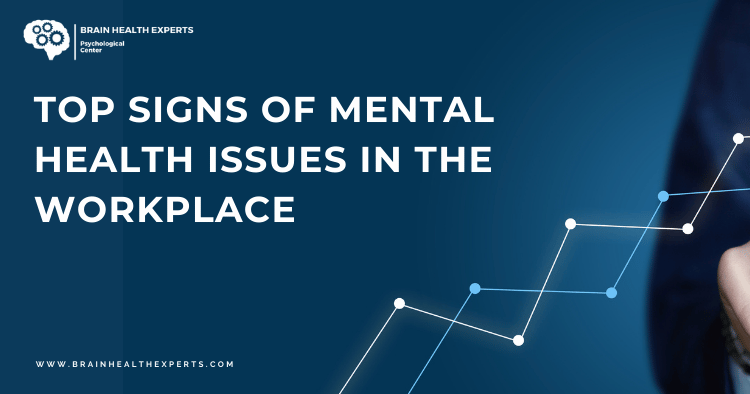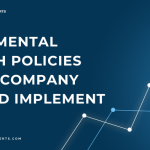- Introduction
- Understanding Mental Health Issues
- Common Signs of Mental Health Issues at Work
- 3.1 Changes in Behavior
- 3.2 Decreased Productivity
- 3.3 Increased Absenteeism
- 3.4 Emotional Outbursts
- 3.5 Withdrawal from Colleagues
- Why Recognizing Mental Health Issues is Important
- How to Approach Someone You Suspect May Have Mental Health Issues
- FAQs
- Conclusion
Introduction
Mental health is crucial for overall well-being and significantly impacts workplace dynamics. Recognizing mental health issues early can foster a supportive environment that leads to improved productivity and morale. In this article, we’ll explore the top signs of mental health issues in the workplace, how to approach them, and why it’s essential to be aware of these signs.
Understanding Mental Health Issues
Mental health problems can range from anxiety and depression to more severe conditions such as bipolar disorder or schizophrenia. According to the World Health Organization (WHO), mental health is defined as a state of well-being where individuals can cope with the normal stresses of life, work productively, and contribute to their communities. When mental health deteriorates, it can affect both the individual and the workplace.
Key Statistics:
- Approximately 1 in 5 adults experience mental health issues each year.
- Mental health issues cost employers nearly $193 billion annually in lost productivity.
For more information on mental health, visit MentalHealth.gov.
Common Signs of Mental Health Issues at Work
3.1 Changes in Behavior
One of the first indicators of mental health issues is a noticeable change in behavior. This can include:
- Increased irritability or mood swings
- Changes in work habits, such as being more withdrawn or unusually aggressive
Such behaviors may signal that an employee is struggling. Observing these changes can help colleagues or managers intervene early.
For more ways to foster a positive workplace environment, check out 10 Effective Strategies to Enhance Workplace Mental Health.
3.2 Decreased Productivity
If an employee who usually meets deadlines and produces high-quality work suddenly starts missing deadlines or producing subpar work, it could be a sign of mental health challenges. Decreased productivity can stem from:
- Lack of focus
- Difficulty in decision-making
- Low energy levels
3.3 Increased Absenteeism
Frequent absences can be a significant red flag. Employees might take more sick days or show patterns of leaving work early. This could indicate:
- Chronic stress
- Anxiety disorders
- Depression
You can learn more about managing stress to improve workplace dynamics in 10 Proven Stress Management Techniques for Daily Relief.
3.4 Emotional Outbursts
If an employee displays heightened emotional responses—like crying spells or angry outbursts—it may signify underlying mental health issues. Such emotional volatility can disrupt the workplace environment and indicate that the individual is struggling.
3.5 Withdrawal from Colleagues
Social withdrawal is another sign to be mindful of. If an employee who once engaged actively with coworkers suddenly becomes isolated or disinterested in team activities, it’s worth checking in. This behavior can stem from:
- Feelings of inadequacy
- Social anxiety
- Depression
| Sign of Mental Health Issues | Possible Impact on Workplace |
|---|---|
| Changes in Behavior | Reduced team cohesion |
| Decreased Productivity | Lower overall performance |
| Increased Absenteeism | Increased workload for others |
| Emotional Outbursts | Disrupted team dynamics |
| Withdrawal from Colleagues | Isolation and decreased morale |
Why Recognizing Mental Health Issues is Important
Recognizing mental health issues in the workplace is crucial for several reasons:
- Improved Well-being: Early detection can lead to timely support and treatment, improving the individual’s mental health.
- Enhanced Productivity: A mentally healthy workforce is more engaged and productive.
- Positive Workplace Culture: A supportive environment fosters trust and collaboration among employees, leading to higher morale.
Explore more about how positive thinking can boost workplace success in 10 Ways Positive Thinking Boosts Workplace Success.
How to Approach Someone You Suspect May Have Mental Health Issues
If you suspect a colleague is struggling, it’s essential to approach the situation with care and empathy. Here are some tips:
- Choose the Right Time and Place: Find a private, comfortable setting for the conversation.
- Express Concern, Not Judgment: Use “I” statements to express your feelings, such as “I’ve noticed you seem a bit down lately.”
- Listen Actively: Give them space to share their feelings without interruption.
- Encourage Professional Help: If appropriate, suggest seeking help from HR or a mental health professional.
- Follow Up: Continue to check in to show your support.
For additional strategies on overcoming negative thought patterns, see 10 Tips to Overcome Negative Thought Patterns Today.
FAQs
Q: How can employers support mental health in the workplace?
A: Employers can create a supportive environment by offering mental health resources, promoting a healthy work-life balance, and providing training to recognize mental health issues.
Q: What should I do if I’m struggling with my mental health at work?
A: Seek support from a mental health professional, talk to your HR department, or consider joining an employee assistance program (EAP) if available.
Q: Is it okay to talk about mental health at work?
A: Absolutely! Open discussions about mental health can reduce stigma and create a healthier workplace culture.
Conclusion
Recognizing mental health issues in the workplace is vital for fostering a supportive environment and ensuring employee well-being. By being aware of the signs and approaching the situation with empathy, we can create a culture where mental health is prioritized and openly discussed. Remember, it’s okay to seek help, and supporting one another can lead to a more productive and harmonious workplace.
For more resources on mental health, check out National Alliance on Mental Illness (NAMI) and Mental Health America.
Also, explore 10 Powerful Techniques to Cultivate Positive Mindset to enhance your mental wellness journey in the workplace.





